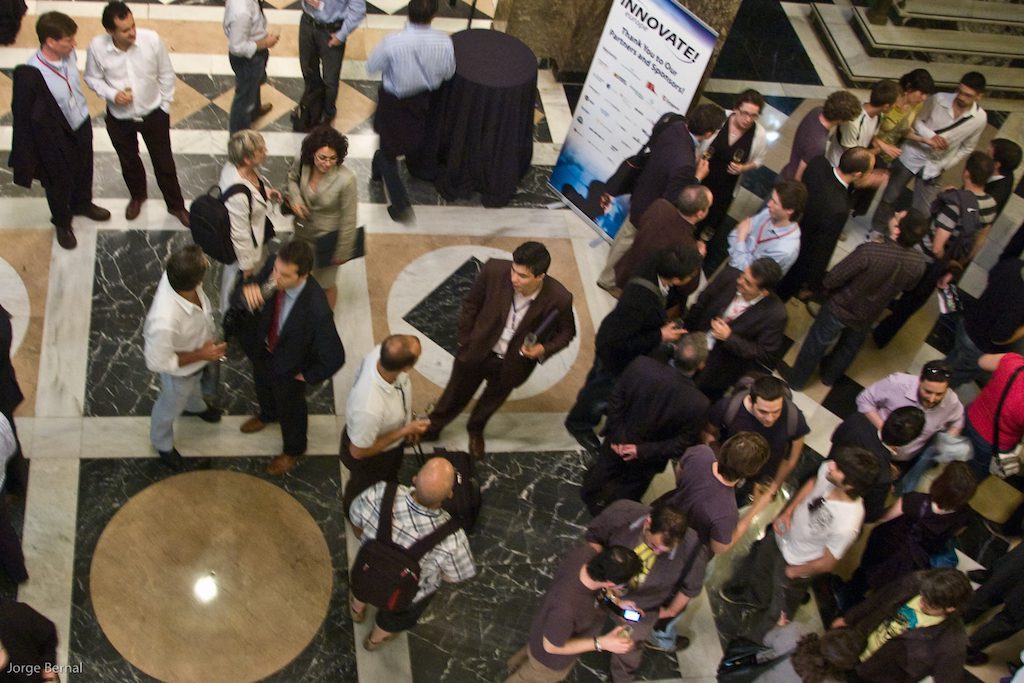Skift Take
Identifying the risks is only the first step. Coming up with a plan that keeps attendees safe while respecting their privacy is much harder.
One of the most challenging parts of a meeting planner’s job is figuring out a way to handle the huge number of risks involved in putting on a large event. Climate change is causing more severe weather, mass shootings are becoming increasingly common in the United States, and many areas of the world are seeing the rise of polarizing political candidates. According to a recent report by BCD Travel, this is all leading to a changing risk landscape. Even digital technology raises the concern of data privacy.
Things get even trickier when considering how attendee experience fits into all of this. It’s no secret that tighter security measures often translate into burdensome, tedious, or offensive policies. No one likes taking their shoes off or unpacking all of their electronics when walking through airport security. In fact, airport security is one of the top reasons many business travelers dislike flying.
Jason Porter, vice president of global security agency Pinkerton, talked to Skift about the best ways to respond to risks at events, and why it is so important to make security protocols as seamless as possible for attendees.
Check out this story, and many more, below.
If you have any feedback about the newsletter or news tips, feel free to reach out via email at [email protected] or tweet @ikcarey.
— Isaac Carey, Travel Reporter
The Future of Events and Meetings
 Event Planners’ Struggle Grows to Balance Tight Security With a Welcoming Environment: Preparing for risks can be overwhelming — but it shouldn’t feel that way for an attendee.
Event Planners’ Struggle Grows to Balance Tight Security With a Welcoming Environment: Preparing for risks can be overwhelming — but it shouldn’t feel that way for an attendee.
Marriott Continues to Bang the Bonvoy Drum Ahead of Planned Brand Expansion: Can a loyalty program outlast the ups and downs of economic uncertainty in key markets? That’s what Marriott is banking on by making sure Bonvoy offers everything customers want.
Why Accessibility Is the Hotel Industry’s Most Overlooked Asset: One of the largest obstacles for travelers with disabilities is simply a lack of information. Hotels are missing out on a huge segment of the tourism market by neglecting to promote their accessibility features.
Around the Industry
Hospitality’s Duty Is to Serve Guests — and Humanity, Says Saira Hospitality CEO: The hospitality industry is based on service, but Saira Hospitality has found a way to expand the meaning of that service to both the guest and the local community.
New Owner Airbnb Will Not Dilute the HotelTonight Brand, CEO of Booking App Says: Airbnb’s focus on adding independent hotels instead of all-and-sundry is a smart approach. The vacation rentals company made more than $1 billion in revenue for the second quarter and intends to go public during 2020. It can’t afford to meddle with the model.
Accor Launches New Economy Brand Greet: Greet’s nonstandardized approach will help it separate itself from other hotels in the economy segment, but individuality comes at a cost and may mean the rollout takes a little longer than equivalent cookie-cutter brands.
Subscribe
Travel Reporter Isaac Carey [[email protected]] curates the Skift Meetings Innovation Report. Skift emails the newsletter every Wednesday.
Have a confidential tip for Skift? Get in touch
Tags: bcd travel, event security, meetings, meetingsiq
Photo credit: Attendees at the closing celebration at Innovate Europe in Zaragoza, Spain. Jorge Bernal / Flickr

